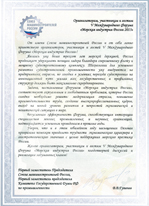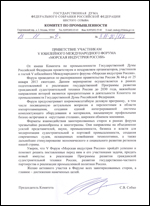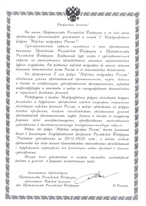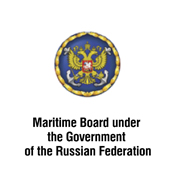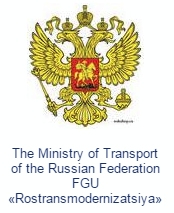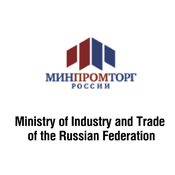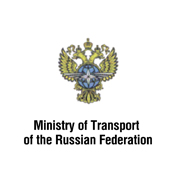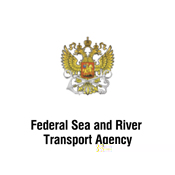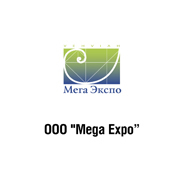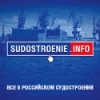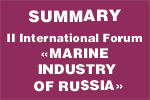“Marine Industry of Russia”
Exhibition Hall,
17-19 May 2016
Time left till opening of the Forum
May 07, 2015
Greetings from the Ministry of Industry and Trade of the Russian Federation
January 28, 2015
The Forum organizers received the greeting from Gutenev V.V., the First Deputy Chairman of the Russian Engineering Union.
January 15, 2015
The Government of the Russian Federation addressed a welcome letter to the V International Forum Marine Industry of Russia.
Industrial services – a brief overview

Photo by
Ship operation implies rendering and receipt of various industry services, such as freight, agency services, leasing, transportation services, human resource development and recruitment, surveyor services, law and financial services, etc.
Freight means payment for cargo or passenger transportation to the carrier vehicle owner.
The world freight market consists of nine sectors:
- Mediterranean;
- Middle European;
- West European;
- North African;
- Far Eastern;
- South American;
- North American;
- Indian;
- Pacific.
Each sector features definite directions of cargo traffic and types of freighted ships.
The cost of freight consists of the following:
- shipping cost as such;
- port duties collected at the ports visited by a ship;
- cost of bunkering and servicing of a vessel;
- cost of return of empty container.
Agency Services. The business of ship agents have been known from the earliest times, since from the moment vessels started to cruise via sea, somebody had to take care of a vessel and its crew at the port call. The agent is to organize cargo-handling operations, enter into agreements with ports, ship-repair docks, etc. His payment is fixed, and its amount depends on a burden and type of cargo. The payment is regulated by law or by decision of the local ship agent association.
Payment is made at special rates, when the vessel calls at a port just to replenish bunker or when agent is to receive supplied or send shipped lots.
Without agency firms, merchant ships operation would be very challenging.
Navigation charts are one of the most important components of secure navigation assurance. Various regions of the sea are mapped with indication of depth and soils, contours of waterline and relief, navigation marks and potential hazards.
Generally, hydrographical charts are used for navigational plotting and extraction of information on the navigating zone. Depending on purpose, hydrographical charts can be divided in 2 groups: navigation and supportive charts.
Modern technologies ensured formation of ECDIS electronic cartographic data information system which displays maps and vessel location, plots and calculates the safest route, warns of potential dangers, keeps an electronic sea journal, steers automatically, etc.
Today, electronic navigation charts are produced by hydrographic offices and various private companies.
From the economical and legal point of view, leasing is a financing method combined with rent and used for deriving profits.
Comparing to other ways of vessel procurement, the main advantages of leasing are:
- no need to simultaneous redeployment of considerable floating funds;
- built vessel is a sufficient security of funds raised by a lessor;
- applicable legislation provides certain preferences which ensure financial saving for parties to the contract;
- at the discretion of the parties, the vessel can be on the balance sheet of the ship owner or the leasing company;
- upon the expiration of the agreement, the vessel is transferred into the ownership of the lessee at depreciated cost.
In order to recover the Russian water transport industry as an integral system, the government is to provide soft leasing terms, whereas small and medium ship businesses being the majority of Russian companies up to now undergo hardship in financing of construction of new vessels.
Human resource development and recruitment is one of the determinants for successful operation of a company. In Russia, human resource development and recruitment services in the shipbuilding and related industries are rendered by many companies. They possess their own databases with information on specialists. Besides, they engage new candidates.
Registration, Classification and Surveillance Activities Currently, ship owners from the world including Russian prefer to register their ships in the countries of so called “convenient flag”. They are Panama, Belize, Jamaica, Bolivia, Liberia, Honduras, Togo, Cambodia, Saint Vincent and the Grenadines, Dominican Republic, Marshall Islands, etc.
The main advantages of such registration are:
- the registration is performed within 24 hours;
- reliability of the flag;
- low registration dues;
- absence of the income tax on marine trading transactions over the borders of the country of registration;
- registration of yachts;
- registration of bare boat charters;
- registration of vessels of any type, etc.
There are some companies in Russia which offer services on vessel registration in the offshore jurisdictions.
Surveyor services are rendering of services on inspection of ships, cargoes and other objects of marine business and insurance as well as on issuance of expert opinions on ships’ technical state, navigability, extent of damage, etc.
Today, more attention is given to ensuring transportation safety and preservation of freight. This to the full extent satisfies interests of all participants of the transportation, cargo owners and underwriters. Growth of the role of underwriting contributes to growth of demand on surveyor and expert services.
Underwriting is the most efficient support for proprietary interests of ship-owner companies. Level of liner and freight rates as well as prices of other transport services depends on the rates at the world underwriting market.
Today, Russian insurance organizations must develop the most convenient, commercially attractive rules and conditions of property insurance. Russian ships come to the market without the mandatory requirement of payment of insurance indemnity in favor of a ship owner, and since this requirement entails increase in the freight cost, ship owners do not strive to raise it.
Taking into account the international practice of insurance, regulatory authorities should start applying the requirement in accordance with which the freighted ships to be underwritten at the expense of the ship owner or the freighter in favor of the ship owner.
Law and Financial Services. In case of dispute on shipping and freight documents which cannot settled by negotiation of the parties, and if the agreement does not provide appeal to commercial arbitration, there is a need for a qualified consult of a legal organization. Theoretically, arbitrage is less expensive and simpler than a lawsuit, but it is not always tried in short terms and as against to the court order, its award can be ambiguous.
To get an insight into civil standards referring the marine transport, it is necessary to get acquainted with navigation laws of various countries, norms regulating relations of parties of charter or consignment, study legislation on principles of losses distribution in case of a general average.
© Marine Industry of Russia, 2009-2010. All rights reserved.
By: “Ideological buiseness-projects”
Design by Valentina Ivanova.
